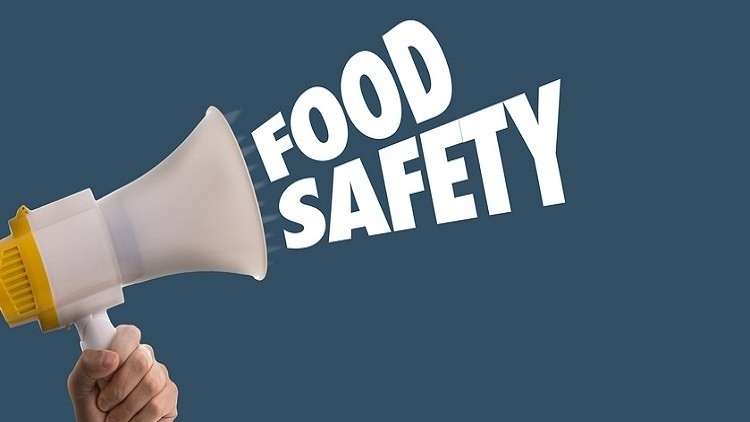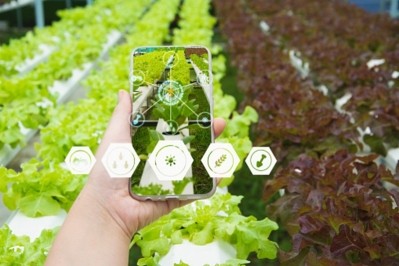Safety First: Australia food cybercrime, China allows low-risk COVID-19 positive foods, India food counterfeits and more feature in our round-up

Cybercrime in food: Five-step plan for Australian firms to tackle ‘increasingly sophisticated’ security risks
Australian food and beverage firms have been urged to implement a new five-step to-do list endorsed by the National Australian Bank to minimize their risk of financial and data security losses in the light of ‘increasingly sophisticated’ cyberattacks.
One of the biggest cyber security attacks in recent history happened to Australia’s largest beer brewer Lion in 2020, when all of its systems were forced to be shut down after it was first hit with a round of ransomware and then a further round of attacks that basically paralysed its IT systems.
According to data from the Australian Cyber Security Centre, cybercrime leaped by 13% in 2021 with Australia’s food supply consistently being a target of attack, and to mitigate these large institutions with financial security expertise such as the National Australian Bank (NAB) are now urging food and beverage firms to take more proactive steps to avoid falling victims to attack.
China COVID-19 updates: 'Low-risk’ food imports that test positive for virus allowed, but frozen items still in the cold
China has relaxed entry rules for ‘low risk’ food and beverage imports that ‘test positive’ for COVID-19, citing the virus’ short survival time on packaging surfaces.
More than two years after the COVID-19 virus first emerged in Wuhan, China back in December 2019, it seems the government is finally moving to relax these import regulations for foods and beverages - possibly signalling its intent to get its international trade back on track – but cold-chain items are unfortunately not part of this relaxation.
“Recent research has shown that under normal temperature conditions, COVID-19 has a short survival time on the surface of most items and is completely inactivated within one day,” China’s State Council Comprehensive Team of COVID-19 Joint Prevention and Control Mechanism stated via a formal statement.
Complex counterfeits: Alcohol poisoning and edible oil fraud cases soar in India
India has seen a renewed spate of food and beverage counterfeit cases in the past few months, particularly involving alcohol and edible oil, leading experts to urge the government and industry to implement a technologically-advanced ‘all-around’ plan to tackle the problem.
India has been a hotspot for food and beverage adulteration cases over the past several years, covering a wide range of products from dairy to honey and more – and after the COVID-19 pandemic hit the region, alcohol emerged as the most vulnerable sector for counterfeits due to high demand and low enforcement, a situation that has not abated since its spike was detected last year.
“In India, alcohol is particularly prone to being targeted for counterfeits – both cheap and branded types of alcohols are always in high demand [and] the unique situation that the COVID-19 crisis created [resulted] in a mismatch of demand and supply,” Authentication Solution Providers’ Association (ASPA) Secretary Chander Shekhar Jeena told FoodNavigator-Asia.
Thai cannabis teething troubles: Authorities vow tough approach to food products amid THC concerns
The Thai authorities have stressed that stringent control measures will be enforced as more food and beverage firm seeks to use cannabis-derived ingredients, amid claims that 30% of products contain higher than permitted tetrahydrocannabinol (THC) levels.
The Thai Ministry of Public Health (MOPH) announced earlier this month that cannabis and hemp would be delisted from the Category 5 list of narcotics in the Royal Gazette as controlled substances, legalising the planting, importing, consumption and also usage of these for use in food products, as long as the tetrahydrocannabinol (THC) content does not exceed 0.2%.
“The use and distribution of cannabis and hemp will however still be stringently monitored and controlled – we do not intend for these items, particularly if the THC content is over 0.2%, to be used too freely, particularly for recreational purposes,” MOPH said via a press statement.
NFTs for food safety? Tech could pave way for alcohol sector to offer luxury and authenticity in one fell swoop
Non-fungible tokens (NFTs) have been touted as a new-age way for premium alcohol brands to offer consumers a simultaneous luxury experience and authenticity guarantee, which could help solve some of the industry’s biggest food safety and fraud issues.
Since 2021, NFTs have become a rising trend within the luxury or ultra-premium alcohol sector, with many high-end brands such as Glenfiddich, Hennessy and Bacardi having launched NFTs in the last year to accompany the launch limited-edition products.
One of the latest entrants to the scene is Scotch whiskey giant Johnnie Walker, which has launched seven NFTs to accompany its rare 48-year-old Johnnie Walker Masters of Flavour limited edition whiskey.











